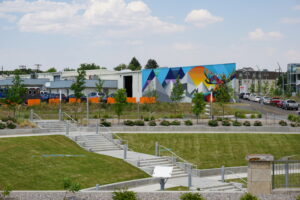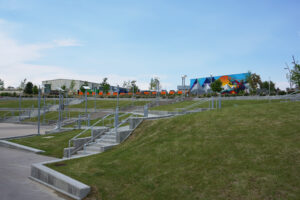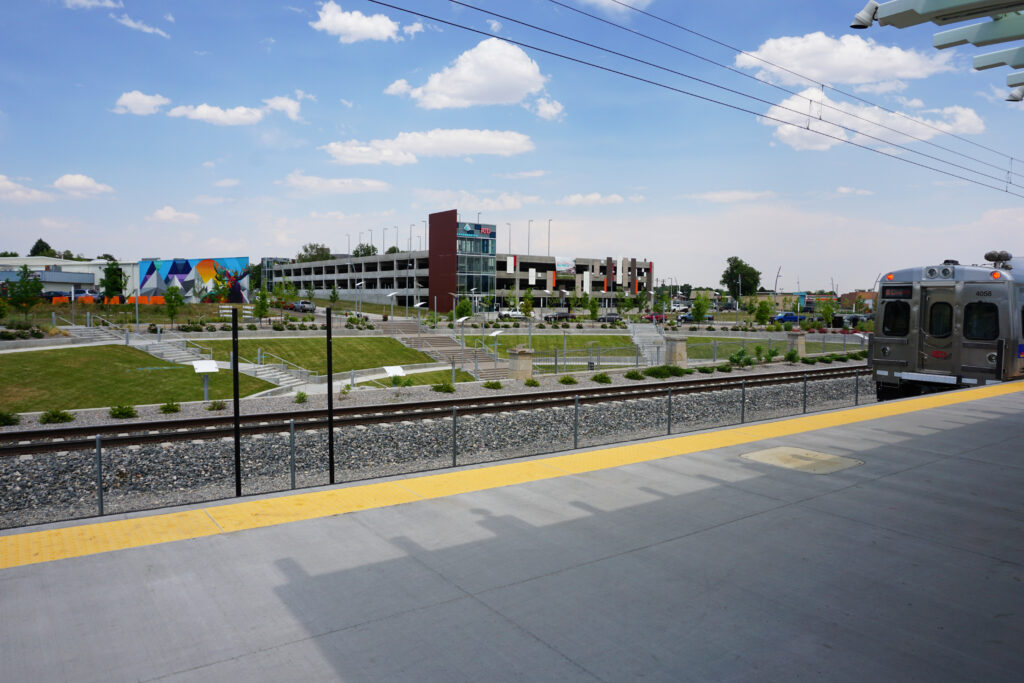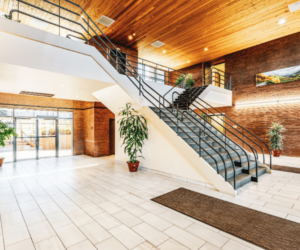Are you a business owner or entrepreneur looking for the perfect office space in Denver? Finding a suitable office space is crucial for the success of your business, as it sets the tone for your work environment and plays a significant role in employee satisfaction and productivity. In this guide, we’ll delve into the key factors influencing office space rental prices in Denver, helping you make an informed decision that aligns with your budget and needs.
Understanding Denver’s Office Space Market
Denver’s economy has been experiencing substantial growth, making it an attractive hub for businesses of all sizes. With a diverse array of industries, from technology and healthcare to energy and finance, Denver’s business landscape is thriving. This robust economy has increased demand for office space, resulting in a dynamic market where supply and demand factors significantly determine rental prices.
Factors Influencing Office Space Rental Prices
When it comes to understanding the intricacies of office space rental prices in Denver, several factors come into play. Let’s look at these factors and how they impact the cost of leasing office space.
Location Factors
The location of your office space within Denver can significantly impact the rental price. The Central Business District (CBD) tends to have higher rental prices due to its prime location and proximity to essential amenities, transportation, and established businesses. Suburban areas, on the other hand, offer a more cost-effective option, catering to businesses that prioritize space and affordability. Furthermore, specific neighborhoods within Denver may also have distinct pricing variations based on their accessibility, local amenities, and overall desirability.
Office Space Features and Amenities
Different classes of office spaces contribute to varied rental costs. Class A spaces are known for their premium quality and prime locations, commanding higher rental prices. Class B spaces balance quality and cost, while Class C spaces are more budget-friendly but might lack certain amenities.
The size and layout of the office space also play a role in pricing. Larger spaces or those with customizable layouts come at a premium. Additionally, the availability of amenities such as conference rooms, parking, and fitness facilities can influence rental prices based on their convenience.
Market Trends and Conditions
Keeping an eye on the current market trends is essential for gauging office space rental prices in Denver. Vacancy rates within the city’s office buildings influence pricing, with lower vacancy rates often leading to higher rental costs. Economic conditions and external factors influence market fluctuations and can also impact rental prices. Additionally, forecasting future rental price trends can help you plan your budget effectively and make strategic decisions for your business’s growth.
Types of Office Space Rental Agreements


Now that we have a solid understanding of the factors influencing office space rental prices in Denver let’s delve into the various types of rental agreements you might encounter when seeking your ideal workspace.
Lease Types
- Full-Service Lease: Also known as a gross lease, this type of lease includes all operating expenses (such as utilities, maintenance, and taxes) in the rental price. It offers simplicity and predictability for tenants.
- Gross Lease: Similar to a full-service lease, a gross lease covers operating expenses, but the terms might be more negotiable, allowing for adjustments based on the tenant’s usage.
- Net Lease: In a net lease, the tenant pays base rent and a portion of operating expenses. The “net” refers to the additional costs beyond the base rent, such as property taxes, insurance, and maintenance.
- Modified Gross Lease: This type of lease combines gross and net lease features. While the tenant pays a base rent covering some operating expenses, they might also be responsible for additional costs.
- Percentage Lease: Commonly used in retail spaces, a percentage lease involves a base rent plus a percentage of the tenant’s sales. This type of lease aligns the tenant’s success with the landlord’s income.
Lease Terms
- Short-term Leases: Short-term leases typically last a few months to a year. They offer flexibility for businesses anticipating growth or space requirements changes. While they might come at a higher monthly cost, they allow quicker adjustments.
- Long-term Leases: Long-term leases often extend for several years, providing stability and potentially locking in lower rental rates. They are suitable for established businesses with a clear projection of future needs.
- Month-to-month Leases: These leases offer maximum flexibility but might come with higher monthly rates. They are ideal for businesses with uncertain growth patterns or those seeking a temporary solution.
Calculating Office Space Rental Costs
As you narrow down your options for office space in Denver, it’s crucial to understand how rental costs are calculated clearly.
Rental Rates
One of the primary factors in determining the cost of leasing office space is the rental rate. These rates are often expressed as “per square foot pricing,” which means the annual rent is calculated by multiplying the rental rate by the total square footage of the space.
Additionally, you’ll encounter terms like “gross rent” and “net rent.” Gross rent encompasses operating expenses like utilities, maintenance, and property taxes within the rental price. On the other hand, net rent entails additional costs beyond the base rent, and these distinctions are influenced by the specific lease type you opt for.
Additional Costs
Beyond the base rental rate, it’s crucial to consider additional costs that could impact your overall expenses. Common Area Maintenance Fees (CAM) cover the upkeep of shared spaces within the building, distributed among tenants based on their proportional share of the total square footage. Depending on your lease agreement, you might also be responsible for a portion of property taxes and insurance costs. Furthermore, utilities such as electricity, water, and heating/cooling may come with separate charges, and understanding which utilities are included in the rent is essential.
Understanding Rentable vs. Usable Square Footage
When calculating rental costs, it’s important to differentiate between rentable and usable square footage. Rentable square footage includes your office space plus a proportionate share of common areas. Usable square footage refers to the space exclusively within your office suite. Rental rates are often calculated based on rentable square footage, which can impact your total cost.
Popular Office Space Rental Locations in Denver
Downtown Denver
Rental prices in downtown Denver can vary significantly based on the specific business district you choose. The Central Business District (CBD) is the epicenter of commerce, boasting higher rental rates due to its prime location and access to major amenities, transportation, and business hubs. Lodo (Lower Downtown) is known for its historic charm and vibrant atmosphere, offering a mix of modern and historic office spaces. RiNo (River North) has transformed into an artistic and creative hub, attracting businesses seeking a trendy and innovative environment.
Each district within downtown Denver presents distinct advantages and amenities, and understanding the nuances of each can help you align your office space choice with your business identity and goals.
Suburban Areas
For businesses looking to strike a balance between affordability and accessibility, suburban areas around Denver provide appealing options. Suburbs like the Denver Tech Center (DTC) offer a range of office spaces at relatively lower rental prices compared to downtown. These areas often provide ample parking and proximity to residential neighborhoods, making them convenient for employees.
Suburban locations can offer a quieter and more relaxed work environment, which might appeal to certain industries. However, there could be potential drawbacks, such as longer commutes for some employees and less immediate access to downtown amenities.
Finding Office Space for Rent in Denver
Online Listing Platforms
In today’s digital age, online platforms have become a go-to resource for finding office space rentals. Popular websites like LoopLink provide a comprehensive listing of available office spaces, making it easier to explore a wide range of options from the comfort of your workspace.
When using online platforms, it’s important to have a clear understanding of your requirements. Filter search results based on criteria such as location, size, lease terms, and amenities. Take advantage of features like virtual tours and high-quality images to get a sense of the space before arranging in-person visits. Additionally, these platforms often allow you to contact landlords or leasing agents directly, streamlining the communication process.
Networking and Local Resources
Engaging in networking activities and tapping into local resources can be highly effective in finding suitable office spaces. Leverage your professional connections, industry contacts, and local business networks to gain insights and recommendations. Attend networking events, seminars, and workshops related to your industry to expand your circle and gather valuable information about available spaces.
KEW Realty’s Leasing Process
At KEW Realty, our leasing process is designed for convenience, simplifying the search for your ideal office space. By engaging directly with the landlord, you benefit from transparent communication, swift decision-making, and tailored solutions. We provide accurate and timely information about available spaces and lease terms, enabling you to make informed choices quickly. Our collaboration allows us to customize the space according to your business needs with flexible lease term discussions that suit your budget.
Moreover, our leasing process extends beyond transactional interactions. We value building strong, lasting relationships with our clients. This commitment translates into efficient issue resolution and expert support, ensuring that concerns are addressed promptly. Beyond the initial lease, our focus on nurturing connections sets the stage for future collaborations and expansions. At KEW Realty, we offer a space and a foundation for your business’s growth and success.
Key Points to Consider
In the bustling city of Denver, searching for the perfect office space is a journey that demands careful consideration. As we’ve explored the factors influencing rental prices, understood Denver’s office space market, and delved into lease types, and terms, it’s clear that the right office space goes beyond location—it’s about crafting an environment that empowers your business to thrive.
From downtown’s vibrant districts to the allure of suburban spaces, Denver offers a spectrum of possibilities. Armed with insights into calculating costs, networking, and the benefits of direct landlord engagement, you’re well-prepared to make a decision that paves the way for productivity and growth. Remember, your office space is more than walls; it’s the foundation of your business’s future success in the dynamic landscape of Denver.


